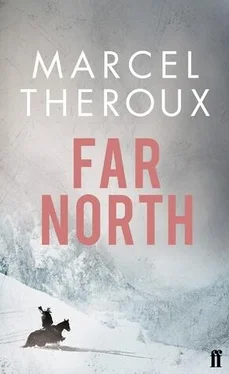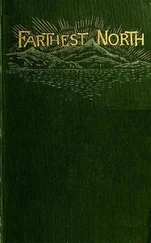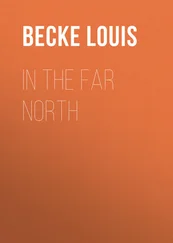The little I told him of my life struck him as insane. He couldn’t believe that my parents had willingly abandoned lives of comfort for the cold of the Far North.
Shamsudin’s own family were all dead, and he had left Bokhara with two companions. They’d been hoping to get to the coast to find a boat that would take them south to Japan or even up to Alaska. They’d come across very few living settlements in their travels, and fewer still who’d help them. One of his companions died of dysentery and the other was shot dead when they broke into a farmstead to steal food. Shamsudin arrived at his destination alone, almost starving, and all the banknotes in his pockets already worthless paper.
He said there was still the occasional boat on the Pacific coast, but the only trade as such was in men and women. About two-thirds of our fellow prisoners had arrived as cargo from Saint Peterpaul in Kamchatka. Shamsudin had watched on the quayside as they disembarked in manacles. If he was aghast at first, he soon got to noticing that the slaves were better fed than he was.
When night fell, he could smell the food cooking over in the slave camp. His guts ached with hunger and his muscles were wasting from slow starvation. He just handed himself over to the guards and begged them to take him. He said he sobbed over his first bowl of food with the shame of what he had done, and he thanked god his parents weren’t alive to see his weakness.
I told him he was being hard on himself. He wasn’t the only one. For every two that were bought, there was another that had enslaved himself because he couldn’t stand it any longer as a free man.
*
Shamsudin aside, the self-enslaved tended to have a harder time of it. There were beast-people among us. One man called Hansom killed a man with a rock one night and strangled someone the second. The guards stripped their bodies of their clothes and left their grey corpses by the roadside.
Hansom went unpunished. The guards let him walk and sleep alone so they didn’t lose any more men.
*
We were backtracking on the same road I’d ridden on through the fall, the commissars’ highway. It all looked different with the snow gone, but now and again I’d see places that I seemed to remember from my journey north. We passed Evangeline towards mid-morning round about the fourth week of the march. I’d known it was coming for days, and as we drew closer to it, my chains seemed to hang a little lighter on me. Just to be close to home was a comfort to me. I hoped we’d pass the night there. Like the rabbit orybook, I felt my chance of freedom would be greater in a place I knew well. I could slip away like Ping had, vanish into the storm drains until the men driving us grew impatient and moved on.
I could feel my heart lifting as the tower on the fire-house loomed proud of the trees and the line slowed to a stop. We were there ten minutes in all, as the guards doled out water. There was one tin mug for all of us, but most of the prisoners, me included, had made our own cups of birch bark like the Tungus did. It was cleaner than sharing, and the birchsap sweetened the water. More than that, just to have something of your own, however small, gave you some of your dignity back.
But at that instant, standing on the edge of the town that had once been my whole world, I felt — not for the last time — like the ghost of the woman I’d been. I thought I could hear a voice calling to me from a distant part of the city, but the sound was drowned out by the shouts of the guards riding along the line and yelling at us all to move on.
*
There was no rain for weeks after the thaw, and the dust raised by all those feet meant we were marching through a choking cloud. It coated the trees beside us and turned the prisoners’ faces grey. Our eyes were wet and bloodshot in masks of ash.
The guards were reluctant to ride at the back of the line, where the dust was worst, so for those of us in the rear discipline slackened somewhat, and we were able to talk more freely to one another, and I got to know Zulfugar a little.
He was an old thirty-five, a full head shorter than me but tough as the devil, and stringy and brown, as though they’d made him out of walnut and rawhide. He prayed even more than Shamsudin.
One night, the guards killed a couple of wild pigs and threw us the leftovers, not out of kindness, but to see us fight over the scraps. A big chunk of haunch landed at Zulfugar’s feet, but he didn’t so much as budge.
I wasn’t too proud to stoop for food so I grabbed it and ate. It was part-burned, part-raw, and very bloody because it wasn’t killed right, but my spit still runs when I remember it. I offered Zulfugar a piece but he wouldn’t take it — he said his religion forbade it.
Zulfugar had been a soldier, and he was very particular about the state of his feet. He washed and dried his foot-cloths each night if he could. Some of the prisoners would rib him about it, as though it was sissy of him to be so concerned about such an unmanly thing, but I soon saw the wisdom of it. One of the men who mocked hardest at him got an abscess on his foot that made his toes goes black. He hobbled so badly that the guards cut his chains off to give him a chance to keep up, but he drifted further and further behind, till one day there was just one fewer at the evening muster. A lot more of us started taking care of our feet after that.
*
Another time we passed the outskirts of a town on a river which must have flooded some years earlier. You could see the high tide stains on the buildings that were still standing. There was silt across the highway, and we came across an automobile all crusted with dried mud that looked like it had been swallowed and spat out by a whale. Its windows were all blurred with mud, but it still had an odd poise, like something squat and pwerful. It put me in mind of one of those low, broad men with sloping shoulders. The rubber of its tyres was ripped and splayed out.
Zulfugar was drawn to it. He caressed its rear window with his dirty hand and muttered something in Russian to Shamsudin. The two of them laughed.
‘He says as a child he dreamed of having such a machine,’ said Shamsudin.
Zulfugar tried the door, but couldn’t budge it. The sound of him snubbing that lock seemed almighty loud in the silence. He was so insistent on getting in that I thought one of our guards would shoot him.
I took hold of his elbow and his arm went slack in my hand, the way it does when you pull someone away from a fight he doesn’t really fancy, and he came along with me, but not without turning to look at the car as it grew smaller behind us. And when we stopped ten minutes later to fill up from the river, he was still full of his car, banging away in Russian and shaking his head, like a hunter who just missed bagging a white moose.
There’s always those moments with the loss of someone close when the pang just grabs you and doubles you up. And other times, when it’s just another of the facts you live with, like the time of sunrise, or the colour of the windowsill. In different ways, all of us confronted the facts of what we lost when the world our ancestors bequeathed to us hit the buffers. I had things which triggered it for me. Laundry was one: there was something so sedate and ordinary about the routines of washing linen. But we didn’t come across too much clean linen on our march. In some strange way, for Zulfugar it was all about that ancient car.
*
We lost eleven men on our trek. That includes the two that Hansom killed, a guard that was thrown by his horse, the man who got left behind, and four of the other prisoners: a heart attack, snakebite, malaria, and an older man called Christopher something or other who just didn’t wake up one morning. I envied him a little.
Читать дальше












